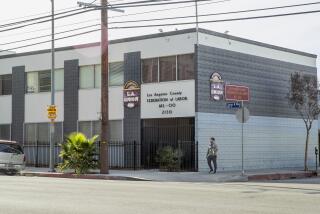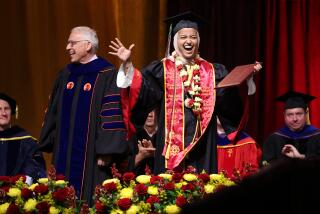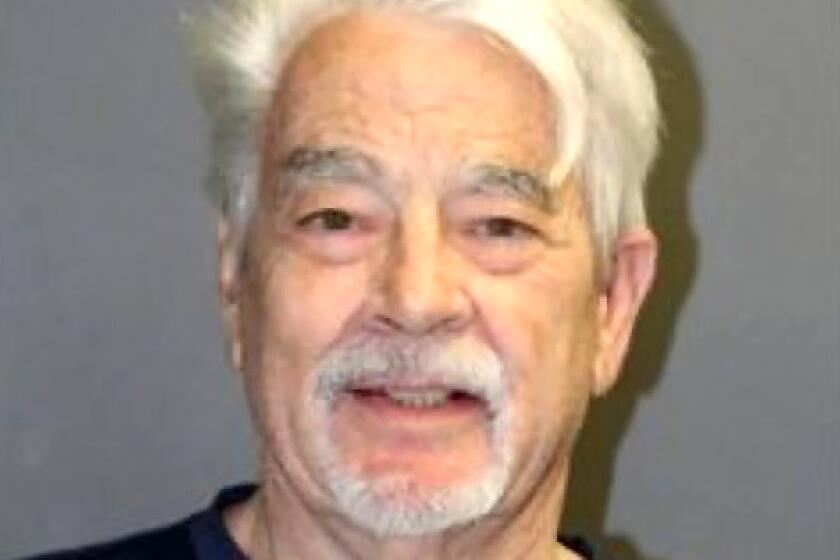Inglewood’s Tax Audit Policy Draws Fire : Finances: The city says it is being short-sheeted in bed taxes by hotel and motel owners and is increasing its efforts to collect the money. The owners say the city has gone too far and plan to file a lawsuit to block the enforcement policy.
Jay Patel has owned the Hollywood Park Hotel since 1977. And over the years, he says, business has been brisk, but hardly booming, at the 15-room hotel across from Hollywood Park Racetrack in Inglewood.
But the city, he said, doesn’t believe him and is now demanding $16,000 a year in hotel bed taxes when he figures he owes no more than $2,500. “They think I’m making all this money . . . but it’s not true,” he says.
True or not, Inglewood officials have been pressing Patel and some other owners of the city’s 45 hotels and motels to either prove they don’t do more business than they claim or face back payments on the city’s 10% hotel/motel bed tax.
The city’s hard-line position on the so-called transient occupancy tax began two years ago when, officials said, audits and spot visits to hotels and motels proved that some were shortchanging the city and taxpayers by renting the rooms, charging the bed tax and then not turning the tax money over to the city.
But now, at a time when Inglewood officials say they are recovering $300,000 to $400,000 more each year from hotels and motels, the owners of many of those establishments claim the city has gone too far.
Later this week, members of the Inglewood Hotel/Motel Assn. say, they will file suit in Superior Court against the city to block a transient occupancy tax enforcement policy that includes unannounced inspections at dawn, rifling through cash registers, as well as demands for income tax returns and other records.
The policy, though around since 1989, has become more aggressively enforced in recent months, according to association officials.
“They need records, no question,” said Patel, president of the association. “The problem is that the questions they are asking and the documentation that are asking for is more than should be required.”
Added Frank Weiser, the Los Angeles attorney representing the association: “We want to get the message across to the city that (hotel and motel owners) are not going to tolerate what’s going on there.”
City officials, however, defend the program, arguing that it targets only those businesses that inspections or common sense show should be paying more in bed taxes. City officials refuse to give the number of hotels that they suspect of underpaying taxes.
“All you have to do is look at this logically,” said Assistant City Manager Norm Cravens. “If they have the records that show what they took in, there’s no problem. But if they say they don’t have records or don’t want to provide them . . . you have to wonder what is happening.”
Although city officials refused to identify specific cases, they spoke of a hotel that reported less than one in 10 of its room rentals and other cases where patrons stayed overnight but were not listed in the guest register.
Hotel and motel officials contend that they are keeping adequate records and that the city is asking for more than it should get, both in taxes and in business records.
Weiser and his clients say they wish to avoid a lawsuit, but efforts at meeting with city officials to develop reasonable tax reporting standards have been ignored. City officials have repeatedly refused to change their enforcement policies, preferring instead to keep pushing for more in transient occupancy taxes, they said.
“The city comes in with a blunderbuss approach,” said Stan Sharma, vice president of the association and owner of the 130-room Tradewinds Hotel on Century Boulevard. “They ask you for everything and we’re reluctant to give it to them.”
In his case, Sharma said, the city demanded personal income tax records after he had turned over bank statements, hotel records and other documentation that showed what sort of business the Tradewinds enjoyed in the last several years.
And after refusing to turn over his personal tax records, Sharma said, the city moved against him to pay an undisclosed amount in back taxes, calculating his hotel’s occupancy rate at 90%, not the 60-65% claimed by Sharma.
The intended lawsuit, Sharma said, is aimed both at seeking a tax reporting policy that hotel and motel operators can comply with as well as an end to what the city calls audits, but what the innkeepers describe as more like interrogations.
“We want to stop them from engaging in behavior that is felt fringes on the illegal,” he said.
City officials counter that claims of unfair, even illegal, enforcement actions are unfounded. Moreover, officials said, the enforcement wouldn’t be as aggressive if all the city’s hotel and motel owners paid what they owed in bed taxes.
“If they all kept any kind of adequate records . . . it wouldn’t be a problem,” insisted Cravens, the assistant city manager. “Our problem is that we go out and find that they have lost records for an entire year or say they lost them in a fire” or offer other excuses for not providing records, he said.
In most cases, Cravens said, city audits have found no discrepancy between the amount of bed tax monies paid to the city and the amount that would have been collected by specific hotels and motels based on their occupancy rates. “Most of them pay what they should” and many have begun paying more since the audit program began, Cravens said.
The city has increased its collections by between $300,000 and $400,000 through the enforcement policy, which has brought the annual bed tax revenues to $1.5 million, he said.
Even then, Cravens said, officials figure the city may not be collecting up to an additional $1 million a year in bed taxes paid to hotels and motels.
The “most outrageous” case of under-reporting occupancy rates, Cravens said, was a hotel with more than 100 rooms paying taxes that reflected a 6% occupancy rate for the year when other records and visits by city officials showed that the hotel’s business was running closer to 70% of capacity.
With more aggressive enforcement, the hotel, instead of paying $6,000 a year, paid $100,000. “And we still believe they may be underpaying the city,” Cravens said, refusing to identify the hotel.
During one audit period, Cravens added, several city employees were sent to half a dozen hotels and motels to check in as cash-paying guests. And after the employees checked out of the establishments, he said, city auditors found that the businesses had no records of renting the rooms.
“These are not just feelings we have had” about hotels and motels under-reporting occupancy rates, Cravens said. “They are well-documented cases.”
Despite accusations that city auditors have been heavy-handed in their approach to the hotels and motels, Cravens says that officials have been well within the law in seeking any records that might document an establishment’s business.
“If the city’s auditor is looking at cash registers, it would be done with the hotel clerk standing there. And when he inspects a room, it is only a room that they (a hotel or motel operator) says is unoccupied,” Cravens said.
Most important, he and other city officials said, the city is only going after the money it is entitled to under the law.
“We’re not trying to get more than the 10%, for God’s sake. We’re just trying to get what is owed to us and taxpayers,” he said.
More to Read
Start your day right
Sign up for Essential California for news, features and recommendations from the L.A. Times and beyond in your inbox six days a week.
You may occasionally receive promotional content from the Los Angeles Times.






